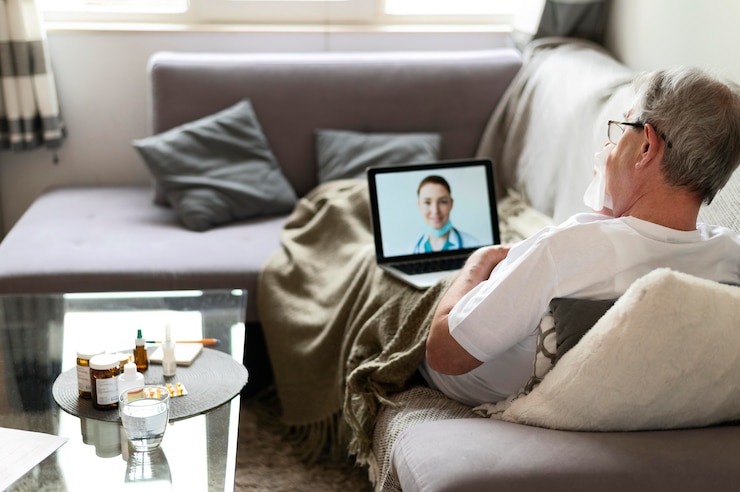Non-profit association comments on Cremesp's report prohibiting virtual interaction, believing in the importance of family support in the patient's recovery process, and emphasizes the power that technology has to bring people closer together and shorten distances
It is well known that technology plays a crucial role in the most diverse stages of a patient's treatment, helping to expand access to healthcare and placing the patient at the center of care. Its benefits and added value go beyond the stages of diagnosis and clinical decision support and enable other aspects that contribute to a better clinical outcome. For example, patient engagement in their treatment and contact and support from family members during the recovery process.
And it is precisely to defend the banner of the use of technology in health and contribute to the improvement of the care model to guarantee both the quality of care and the sustainability of the sector, that it is considered important to position itself regarding the opinion of the Regional Council of Medicine of São Paulo (Cremesp).
For the Brazilian Association of Telemedicine and Digital Health Companies (Saúde Digital Brasil), the ban on recording videos and making telecalls between intubated, sedated or comatose patients in the state of São Paulo, stating that, in these situations, the patient is unable to express their consent to join the call and interact with relatives, goes against the principle of ensuring that everyone receives the best possible care.
In its opinion, Cremesp maintained 2016 rules from the Federal Council of Medicine and the regional entity itself that prohibit calls, filming or video conversations between patients admitted to intensive care units (ICUs) and emergency rooms. The document, however, disregards the fact that the coronavirus pandemic, which has hit the country since March 2020, has changed the context, which prevents family members from having access to hospitals.
On the other hand, it has been scientifically proven that people in a coma benefit clinically from external stimulation and that they can hear, even when unconscious. Furthermore, the presence of family and close friends is essential to increase the feeling of acceptance, friendship and support during this phase and thus ensure the evolution and success of the treatment. This is why, before the pandemic, intubated and/or sedated patients received daily visits that were ethically accepted and guaranteed by law and fully understood as a demonstration of affection.
Regarding consent and expressing your desire to receive visits, the existence of which was pointed out as an impediment to virtual visits, it is worth considering that this is not a custom among the Brazilian population, nor is it a regulation in force in the case of in-person visits to the hospital. It is therefore contradictory that this is mandatory in the case of virtual contacts.
Regarding the legal aspects of preserving image rights, video calls (which are also encrypted) cannot be considered a violation of this law, which prohibits the disclosure and use of third-party images without consent. Unless the recordings or conversations are disclosed on social media. However, to avoid such improper use, all parties involved must be aware of the ethical and legal implications of inappropriate exposure of the hospitalized person. Protocols must be created to systematize these visits. Feasibility, however, must be analyzed on a case-by-case basis, except for the patient's current conditions, as is often done in person.
Therefore, just as we believe in full telemedicine and its vital role in achieving our goals and ensuring dignified, quality, yet agile, efficient and rational care, the use of electronic resources can help alleviate the pain of the moment and ensure that patients and family members have the right and the choice to be close, even if physically distant. Removing this right would be a setback in all the benefits already achieved and also a way of delaying the healing process.
About Digital Health Brazil
The Brazilian Association of Telemedicine and Digital Health Companies, known as Saúde Digital Brasil (SDB), is a non-profit organization created to bring together entities that operate in the telemedicine service provision chain and that develop activities related to digital health.
Founded in 2020, the entity's main goal is to defend the cause of healthcare through telemedicine and telehealth in Brazil and to create regulations that guarantee its continuity. In addition, the SBD works to contribute to the improvement of the healthcare model, increase scientific and technological development and innovation, and qualified and sustainable development of the healthcare sector.





